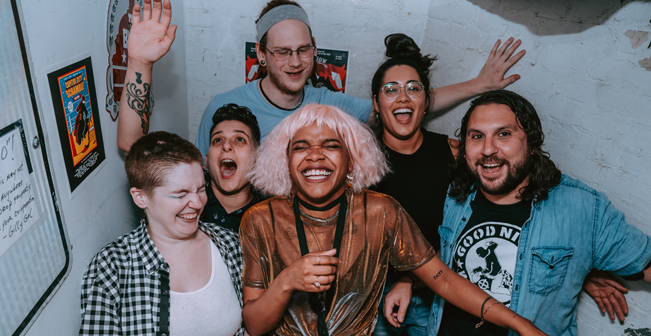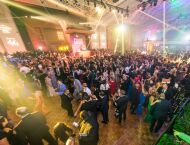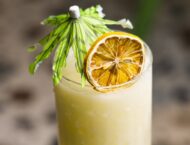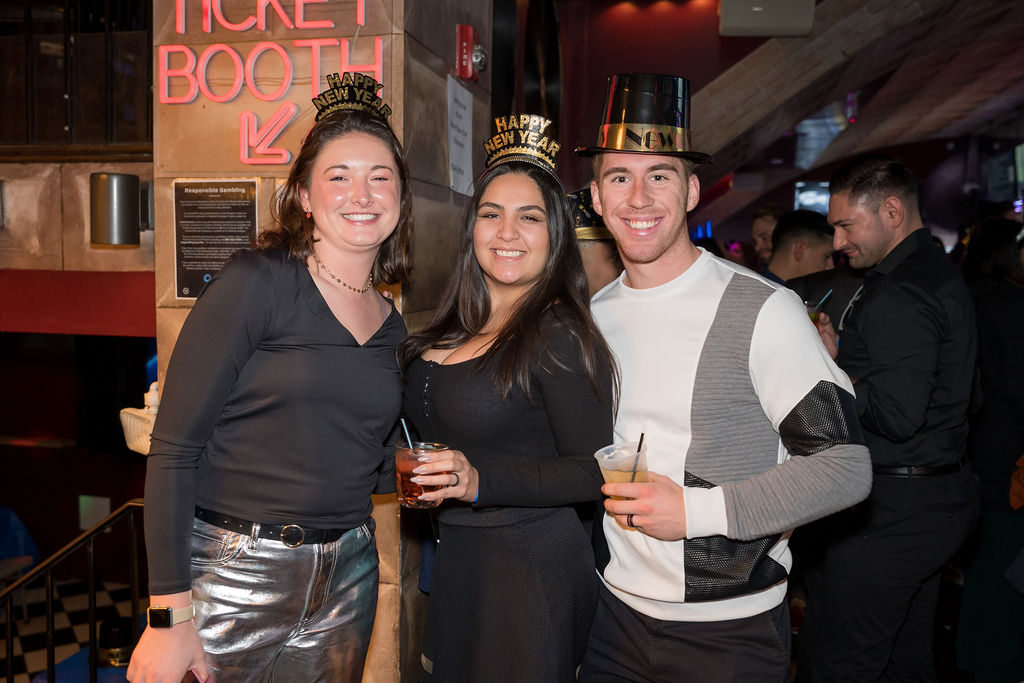Music
 Clockwise from left: Vitamin Dee Chrystal, Frankie Goodbye, Mike Beckage, Josette Matoto, Matt Kirkland, Shady Rose // Photo: Kimchi Photography
Clockwise from left: Vitamin Dee Chrystal, Frankie Goodbye, Mike Beckage, Josette Matoto, Matt Kirkland, Shady Rose // Photo: Kimchi Photography
In Their Own Words: Lightmare
August 2, 2019 @ 12:00am
Lightmare doesn’t just make music. They create change. Since their beginnings as a “six-piece soul-punk outfit” touring around DC to recording and releasing their full-length record Dream Glitch last year, the group has always held their individual and group identities close as a way to engage each other and their audiences about their message and their music.
In order to let the band fully express their inner thoughts and inner workings, On Tap facilitated a conversation with the group before their show at the Dew Drop Inn last month where they asked questions specific to each member and their ethos as a band. They asked what they wanted to know of each other, answered honestly, and shared much of their music and themselves in the process.
Q for SHADY ROSE
lyrics and lead vocals
Beck: You once said to me that when you get onstage you “become our music” and the line between where you end and the music begins essentially disappears. What did you mean by that?
Shady: When I’m presenting a performance type of art, especially music to a group of people, the purpose of that action is to disappear my identity and become the object of the music. The music then also becomes the audience, so I become the audience. I feel so connected and insightful into their being, and also deeply aware of the otherness of other people and the otherness of me. It’s a mindf—k. It’s a beautiful moment to me.
Q for JOSETTE MATOTO
drums
Dee: The August 15 show is your last one with us. Years from now, what do you think your lasting impressions or favorite moments from your time with us will be?
Josette: Recording was really great because I got to hang out with y’all over more than just a day, and in a tiny room pretty intensely. The things I already loved about you all were double time. I know I was struggling on some parts of drumming. You were all sweet and super supportive and no one got frustrated. I tell this to my partner Jess all the time that y’all are just the sweetest, kindest, most thoughtful group. For better [or] for worse, it makes it harder to leave.
Q for FRANKIE GOODBYE
bass
Shady: Have you ever done something really unkind? How did you process that?
Frankie: Sadly, I’m a human despite my robot interior. I am always striving to be a better version of a human, and I definitely mess up. But as a young person, I was not the greatest at times. I wrestled with many, many demons [and] still do. That led me to make poor decisions, usually catching someone in the mix. I feel that I am constantly processing it, even after all these years, and constantly checking in with myself and my actions before I make another poor decision. Working with Girls Rock! DC, giving back to kids and folx in the community, and having music as an outlet are my most productive means of processing.
Q for MIKE BECKAGE
guitar
Frankie: Some of my favorite musicians say they can visually see the music before it comes out of them. The music tells them where to go and they’re just the vehicle for it. How do you muster up those sick riffs?
Beck: You’re really in the zone and doing your job as a musician. You’re just a conduit and a vessel. You get to express to the audience what you’re trying to say musically. I do hear things in my head before I make them happen on the guitar, but it hasn’t always been that way. A big challenge for me musically has been making the guitar do what I want instead of having the guitar dictate what I can do.
Q for MATT KIRKLAND
saxophone and backing vocals
Dee: In the past, you’ve shied away from solos and have said you just want to “doot doot doot” and jump around, but your parts are actually quite sophisticated. How do you view your role in the group dynamic, both interpersonally and musically?
Matt: As you get older and have life experiences, you learn that other voices need to be heard. You want to lay back a little bit, and if you have something to offer and provide, you do it. And that’s kind of how I see my instrument in Lightmare. When the song calls for it, I offer it. When there’s decisions to be made and they’re tough and we’re having a discussion – and if it’s something that I have experience with – I offer it. But I try not to push it to the front. That’s the beauty of the whole band in general. I feel like everybody is on that page. If only it was like that in real life as well.
Q for VITAMIN DEE CHRYSTAL
keyboard, backing vocals and accordion
Shady: You have a uniquely open heart and I know that onstage, in practice and just in the life of an artist, being so open and raw can be both a gift and a challenge. Can you speak on a time that it was a gift in your life and a time it was a challenge?
Dee: Something that happened to me in adulthood was learning to be publicly vulnerable. I’ve actually found that in expressing vulnerability, it takes away a lot of the pain and the shame that comes with trying to keep it hidden. It started with me talking about some of the mental health challenges I face. I think it’s so important to talk about it, so that more people understand how common it is. My friends had to really be strict about setting boundaries before I was like, “Oh, I do need to go to a therapist.” I’m still learning how to do that, but I’ve come such a long way.
Q for ALL
Matt: Identity and politics seem to be something that typically marginalized folks publicly address and push back against the mainstream narrative in the world. A lot of privileged folx sit out or piggyback off of the work womxn, nonbinary, trans, queer and other nonprivileged folx put out into the world. How does your identity shape your vision for Lightmare, your decision to join, the space you’re creating and your hopes for the future of the group?
Frankie: When I auditioned for the band, I thought, “Well, this is perfect! They need another nonbinary person to make it all even.” Walking in, I got a sense of belonging versus a homogenized group. My identity is more than that. It’s who I am, how I walk around in the world – and that comes with a lot. The good, [the] bad, and at times, [the] dangerous. That shapes my message: what I need other folx to hear or understand through my music and my way of being. I don’t think I could do that in another band. The commonality of thought is not always there. In Lightmare, differences are met with conversation, which leads to understanding. How many spaces can you find that?
Dee: I just want to say, part of why I stick with Lightmare is because the men in the band who are coded as straight white dudes are asking these questions and we’re having these conversations. I mean like, f–k. Thank you for asking. It’s a great question.
Shady: Coming from a background as a black person, as a femme person who is queer [and] grew up pretty poor, [it’s] being a part of a group of people who are really trying to put out a message that is real and engaged with the issues. We’re out here being radically open [and] radically honest with each other where we can. We’re being vulnerable when we’re seeking knowledge. We’re being real with each other and calling each other out when we need to. Creating that mutual respect between us as a group of people is super important to me. It reaffirms my knowledge that it’s possible [on] larger scales to have a really varied group of people come together and accomplish something really big and important together, while centering on the needs and identities of marginalized people.
Lightmare play Rhizome with Strange Froots and Black Folks Don’t Swim? on Thursday, August 15. For more information on the band, visit www.lightmare.bandcamp.com and follow them on Instagram and Twitter @lightmare.dc.
Rhizome: 6950 Maple St. NW, DC; www.rhizomedc.org








